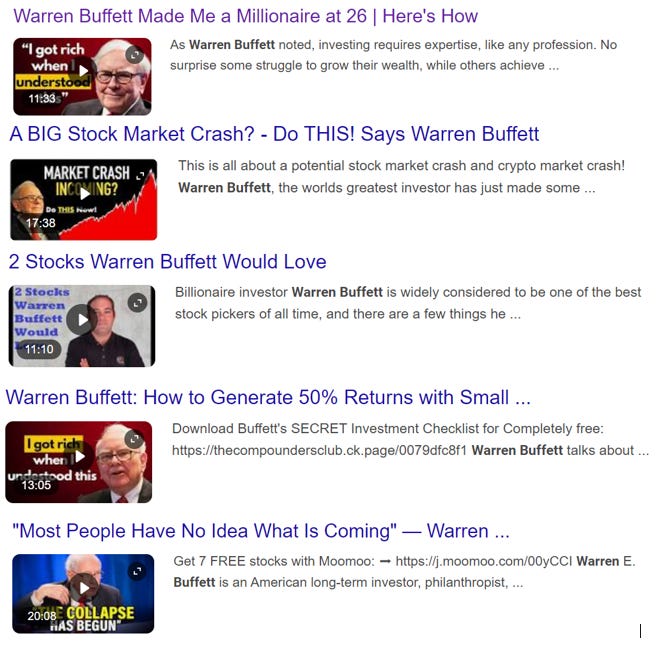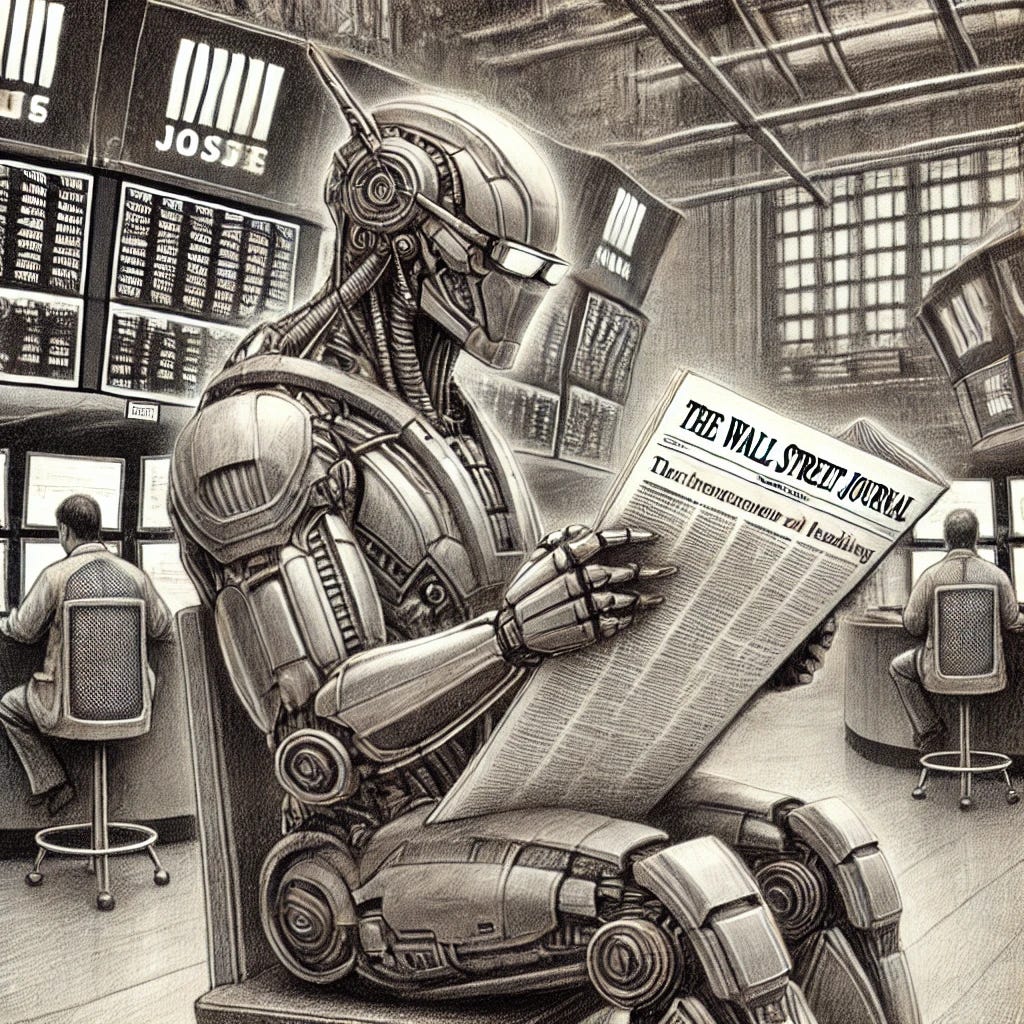Albert Einstein never actually said that compound interest is the eighth wonder of the world, but he sure could have. Those long-term charts of what a dollar invested long ago in the stock market has become if allowed to keep growing are amazing.
But you know what’s more amazing? Squeezing out twice as many percentage points of return over many, many years. Get out a calculator and try it now if you don’t believe me. That’s what history’s greatest-ever compounder has managed–a man whose biography, for that reason and others, is called The Snowball (an interesting read – all 960 pages. I’ll review it here some day).
An investment in Warren Buffett’s Berkshire Hathaway when he took over in 1965 had appreciated by 4,384,748% by the end of last year, or 140 times as much as one in the S&P 500 stock index. Including his original investment partnerships, which Buffett started in 1956, a dollar invested would have grown to about $350,000.
Wouldn’t it be great if you could hitch your wagon to that sort of financial savvy? It seems like the simplest way would be to just invest in Berkshire directly (the non-voting “B” shares since one of the original “A” shares now costs more than a typical home). That might not be a bad idea, and if you think of the gigantic conglomerate as a fund then Buffett is both the best and the cheapest money manager alive. At age 94, with all of his accumulated knowledge and wisdom, he still goes to work every day for shareholders and basically does it for free: His $100,000 salary is like a 0.00001% fee.
But there’s a catch: Berkshire is worth almost a trillion dollars as I write this. It is now so massive that it can’t be expected to do much better than the broad U.S. market–almost certainly not the 9.6 extra percentage points a year it has achieved on average historically. Instead of quietly buying some shares of an obscure stock, it has to purchase entire multi-billion dollar companies and pay up to do so. If it wants a substantial enough stake in a traded stock to move the needle then my newspaper and others will find out and make it a leading news item as soon as it becomes public, causing others to drive its price higher. And then people will worry something is wrong when he starts to sell.
But what about the Buffett of old with a smaller pile of money, like the amount you or I have? Buffett was asked about this some years back:
The highest rates of return I’ve ever achieved were in the 1950s. I killed the Dow. You ought to see the numbers. But I was investing peanuts then. It’s a huge structural advantage not to have a lot of money. I think I could make you 50% a year on $1 million. No, I know I could. I guarantee that.
Where do we sign up? Unfortunately it isn’t 1956 and you aren’t Warren’s Aunt Alice, who was among the early clients of a then-unknown money manager. The market is also much more picked over by dozens of pros and thousands of amateurs who model themselves after Buffett.
That hasn’t stopped all sorts of grifters who produce thousands of low-quality articles or videos touting a “Warren Buffett stock,” predicting a crash supposedly based on his statements, or selling get rich quick formulas.
There are surely some worthwhile ones, but the more explicitly someone uses Buffett’s name to sell you something, or just to get you to click, the less I’d trust it. You’ll have better luck with a different medium that uses dead trees and a printing press and might require a somewhat longer attention span. There are several books, many of which adorn my shelves, on the man and his methods–those by Robert Hagstrom, Adam Mead, Roger Lowenstein, Jeremy Miller, and Alice Schroeder’s aforementioned “Snowball,” and I’m forgetting a couple.
There also are some great ones by Buffett-adjacent people like Seth Klarman, Joel Greenblatt, and The Intelligent Investor by his mentor Benjamin Graham (a new, annotated, 75th anniversary edition is coming out in three weeks with notes by my brilliant colleague Jason Zweig). And last, but not least, you can read all of Buffett’s annual letters for free on the internet. They’re easy to understand and wonderfully written, with the ghostwriting of veteran financial journalist Carol Loomis to thank for several of them.
But, not for the first time, someone in the fund management industry has promised to bottle Buffett’s essence and sell it to you. This time it has those two magical letters attached to it: “AI.” Neither the exchange traded fund’s name, the “Intelligent Omaha ETF,” nor its prospectus has Warren Buffett’s name anywhere, probably on the advice of their lawyers. But you would have to be clueless to miss the suggestion: Its ticker is AIWB.
Is it some robotic version of The Oracle of Omaha?
Not exactly. If you read the fine print, it amounts to a human analyst suggesting stocks, asking an AI, and then making the final decision himself:
The Analyst has also defined the Fund’s philosophy, which is built on the ideas of the world’s greatest investors with an emphasis on returns on invested capital, enduring business models with the ability to serve customers for long periods of time, and long term business ownership (the “Philosophy”). The Analyst will define the list of the world’s greatest investors for the AI.
It sounds a lot like a human using ChatGPT to help him screen stocks. I just asked version 4.0 what five stocks Buffett would buy. It said Apple, Coca-Cola, Chevron, American Express and Berkshire Hathaway itself.
“These stocks reflect Buffett's investment strategy, focusing on companies with strong fundamentals and a durable competitive advantage.”
Well thanks for nothing. I also just asked it which books I have written. The technology has improved since version 3.0 in that it correctly listed the two I actually have written this time, but it also threw this in:
Why Stocks Go Up and Down (2022): This book is a primer on stock market investing, explaining the factors that influence stock prices in an accessible manner, making it suitable for both novice and seasoned investors.
No royalty checks from that one yet! Anyway, let’s assume the fund manager asks the right questions and the AI is a super-duper version that really can screen for stocks. Would that be like having the 1956 version of Warren Buffett as your personal money manager? No, and for three reasons:
First, it isn’t 1956. Computing power has been applied to the market for years and some very smart people who don’t even need to get a human fund manager involved have made fortunes scouring the market for anomalies. Many more have tried and failed. There are very few “net-nets”–companies worth more liquidated than as going concerns–around to buy the way there were in the middle of the 20th Century.
Second, Buffett basically runs an insurance company. It has a float–other people’s money–that it can use to invest and earn excess returns. He has usually picked the right type of stock–those that are cheap or of good quality, or ideally both–and been willing and able to wait if they went sideways for a while. Nobody is entrusting their money to you for years and you should never use borrowed money when you invest. Here’s the key line from an academic paper that deconstructs Berkshire’s success:
“Buffett’s returns appear to be neither luck nor magic, but, rather, reward for the use of leverage combined with a focus on cheap, safe, quality stocks.”
But the main reason this AI fund can’t make you Warren Buffett is that you aren’t Buffett. He is a brilliant student of the markets, but he is also one of those rare people who doesn’t care what is in the headlines or what other people think. Will you put your faith into AIWB (which has a 0.69% expense ratio, by the way) through thick and thin? And are you fearful when others are greedy, and vice versa? And even if you are, will the fund just be another fad that closes once other people lose interest in it and move on to the next shiny object?
While you probably won’t earn 20% over your investing lifetime, the sorts of things the AI is screening for and that made Buffett successful, “companies with strong fundamentals and a durable competitive advantage,” are constantly being pored over by some really good active fund managers out there. I won’t name names because I don’t want to upset someone for being left out. I only personally own two actively managed funds, and only because they’re fairly unusual and that I’d have to pay a lot in taxes if I sold them now. I might consider a few Buffett-esque ones as worth the price. I also might regret it—nearly 90% of active managers lag a market index over a decade.
Just as good in most cases are dozens of cheap, tax-efficient exchange traded funds out there that passively screen for the same characteristics that made Buffett successful. If stocks compound by, say, 9% over your lifetime and you make 11% or even just 10% because of a tilt towards those factors then you should be extremely pleased (again, whip out your calculator if you need convincing). Most people fall short of even the market return because of poor timing. Your nest egg could easily be twice as big as the typical investor’s by buying and holding them.
This isn’t investment advice and is in no way endorsed by my employer, but readers sometimes ask what I own personally. Here are some passive funds I personally prefer to those that just track the S&P 500, which is the sort of index fund most people own: The Vanguard Value ETF, with a 0.04% expense ratio; the iShares MSCI EAFE Value ETF with a 0.34% expense ratio; the Avantis U.S. Small Cap Value ETF with a 0.25% expense ratio; and the Cambria Shareholder Yield ETF with a 0.59% expense ratio.
There are also funds that explicitly track quality such as the iShares MSCI USA Quality Factor ETF or those that balance quality and value like the Alpha Architect U.S. Quantitative Value ETF. I don’t own them but might in the future. You’ll notice that some have tiny fees and others chunkier ones. Expense ratios rise for those that have a secret sauce, such as not following an established index, or those that regularly rebalance. Many should be able to easily make it up in performance compared with a plain vanilla stock fund.
Being just a little bit like Warren Buffett, or his late partner Charlie Munger, can be profitable. Making money off of their names, or getting as close as you legally can, might be too, but don’t let it be at your expense.





